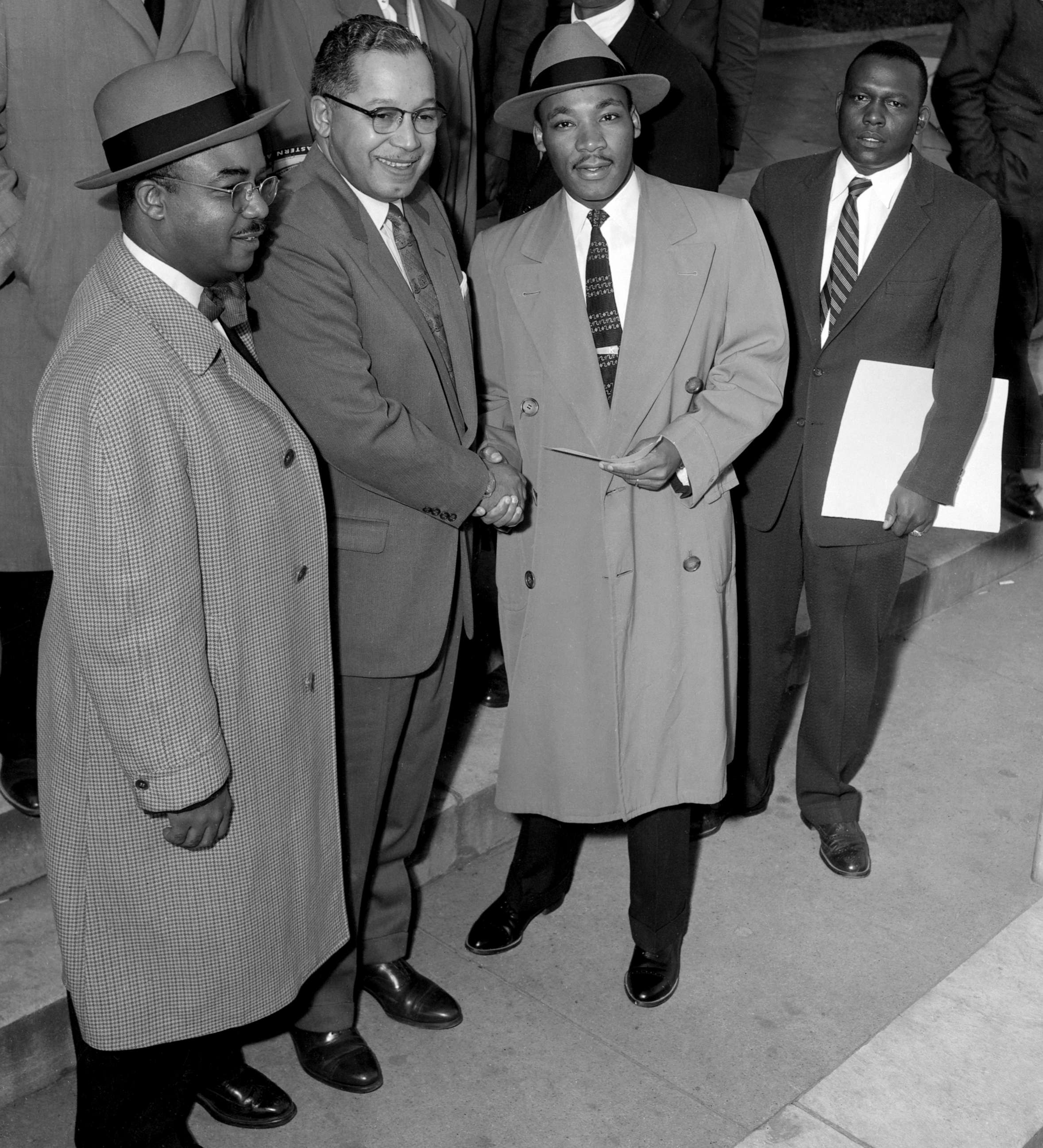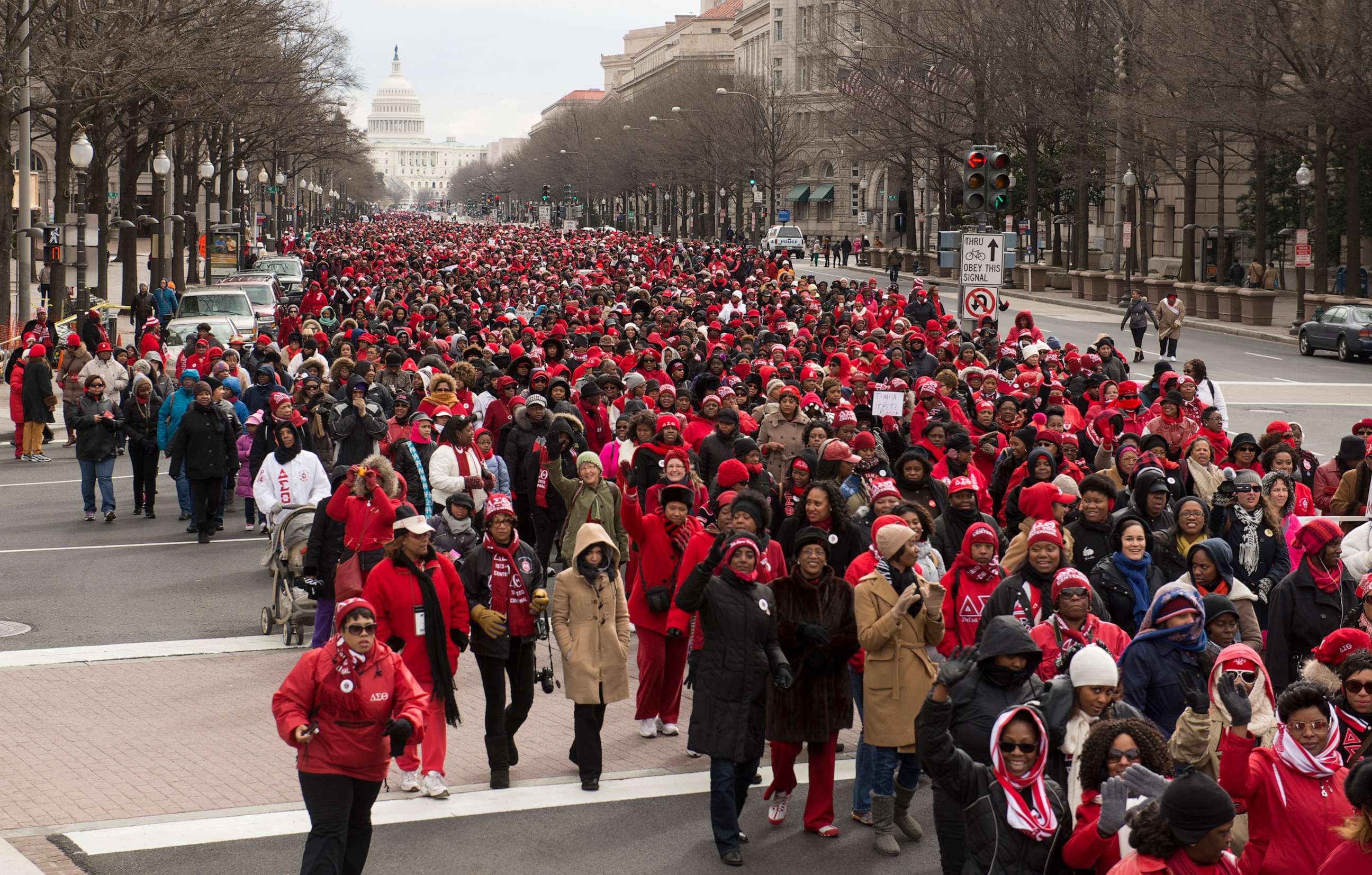The Divine Nine: The history and impact of Black Greek letter organizations
How organizations grew to such an integral role in the Black community.
From the fight for freedom in the civil rights era to Hollywood to the White House, members of the National Pan-Hellenic Council -- also known as The Divine Nine -- continue to be a catalyst for change on college campuses and beyond.
The Black Greek-letter organizations represent the collective purposes of scholarship, service and the power of community.
"Sisterhood has obviously been something I've gained, but I've loved being able to serve in a capacity like this -- being able to give back to the community in ways that I was able to receive from a young age," Nya Christian, a member of Alpha Kappa Alpha Sorority Inc., told "Good Morning America." "That's something that I really value in this life and being in this sorority."
Composed of four sororities and five fraternities, you can often hear members of organizations within the National Pan-Hellenic Council shouting a chant, doing a step or hosting a community service event.
"They understood that their education was not enough; they had to work as a group to lift up people who didn't have those circumstances and at the same time fight for themselves," said Lawrence Ross, author of "The Divine Nine: The History of African-American Fraternities and Sororities."
Ross, who joined Alpha Phi Alpha Fraternity Inc. in the spring of 1985, added, "I basically looked at Alpha as being a conduit for what I wanted to do within the African American community, which was basically internal growth for my own self, working with brothers who actually have the exact same sort of mentality."

Prominent leaders such as Kamala Harris and the late John Lewis and entertainers such as Angela Bassett and Sheryl Lee Ralph, as well as influential athletes including Michael Jordan and Colin Kaepernick, were all members of "D9" organizations.
The foundation
The Divine Nine, according to the National Pan-Hellenic Council website, "evolved during a period when African Americans were being denied essential rights and privileges afforded others."
Racial isolation at predominantly white college campuses and social barriers such as class also created "a need for African Americans to align themselves with other individuals sharing common goals and ideals," the organization added.
Following Alpha Phi Alpha -- the first Black Greek-lettered fraternity, which was founded at Cornell University in 1906 -- eight other organizations followed. Five were founded at Howard University, including Alpha Kappa Alpha (1908), Omega Psi Phi Fraternity Inc. (1911), Delta Sigma Theta Sorority Inc. (1913), Phi Beta Sigma Fraternity Inc. (1914) and Zeta Phi Beta Sorority Inc. (1920).
Two were founded in Indianapolis: Kappa Alpha Psi Fraternity Inc. (1911) at Indiana University and Sigma Gamma Rho Sorority Inc. (1922) at Butler University. Iota Phi Theta Fraternity Inc. was founded at Morgan State College, now Morgan State University in 1963.
Though rooted in challenges brought on by racism, members pursuing higher education have become changemakers in STEM programs, media, finance and other professions, and have left lasting legacies in today's society.
The impact
Today, there are nearly 2 million National Pan-Hellenic Council members collectively.

Oftentimes, it's a generational tradition among family members, with grandparents, parents and children sharing a special connection by joining the same organizations.
"My family's legacy in this fraternity started with my dad on the campus of North Carolina A&T in 1989," said Noah Thomas, a member of Omega Psi Phi. "This past spring, I was initiated at Howard University as well as my brother -- he was initiated on [Hampton University's] campus this last spring."
"Long before we were all members of Omega Psi Phi Fraternity Inc,. those two guys were my best friends. Now we're all members of the greatest fraternity in the world, [and] our bond has somehow gotten even stronger," he added.

Ross noted that "fraternalism is designed to be a lifelong commitment, and a lifelong commitment is not just simply the networking between members, but using that commitment within the organization to push and accelerate the African American community forward in this country, which is almost always under constant attack."
Tylik McMillan, the former director of Youth and College at the National Action Network, who joined Phi Beta Sigma in spring 2018, said National Pan-Hellenic Council members gone on to make a difference in different professions, "whether that's in politics, business or C-suites, we understand our collective power."
"Our organizations have always been at the front line of social change and that does not change today," McMillan said. "I think that speaks to our rich legacy, and we do that justice by continuing to carry that mantle."







